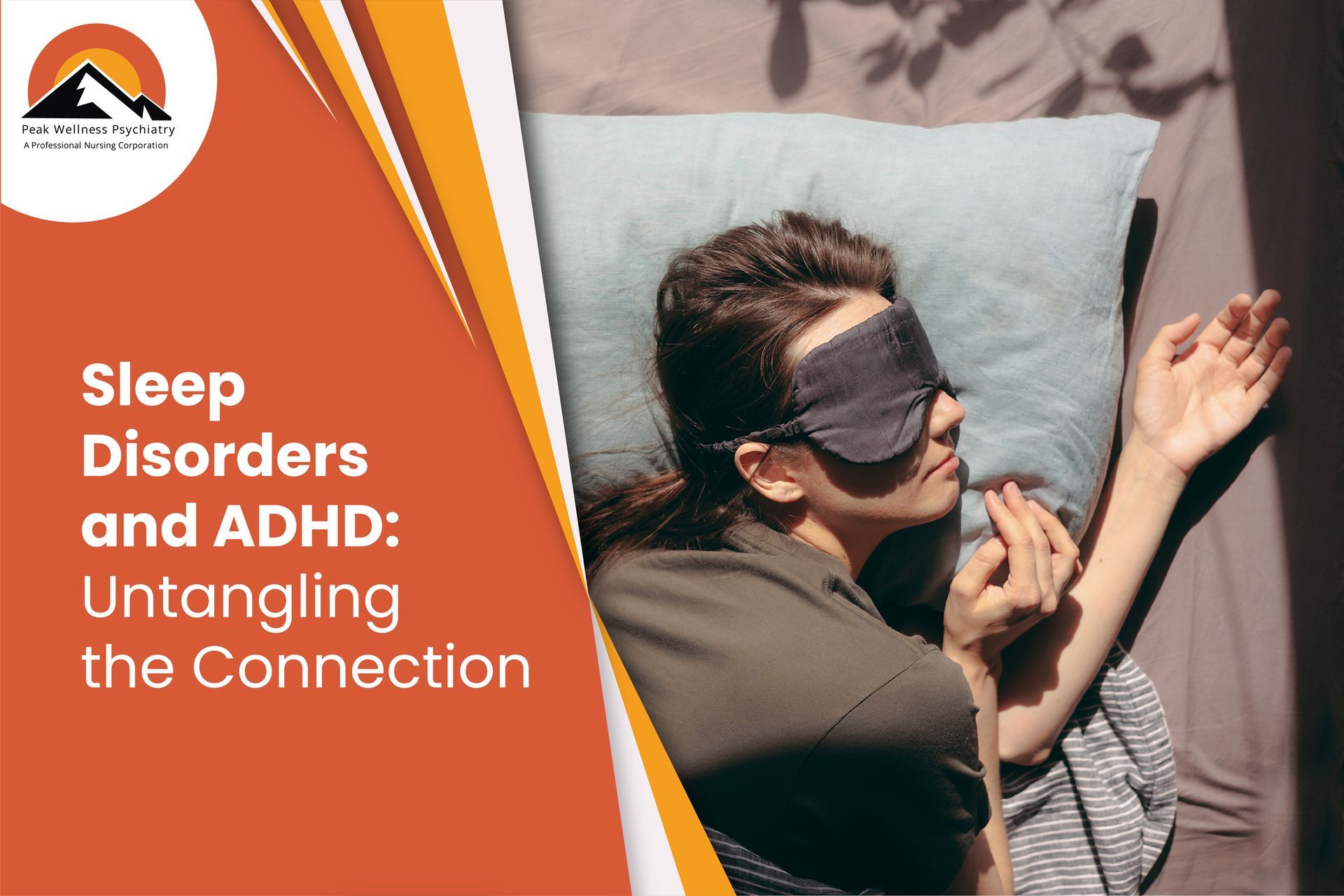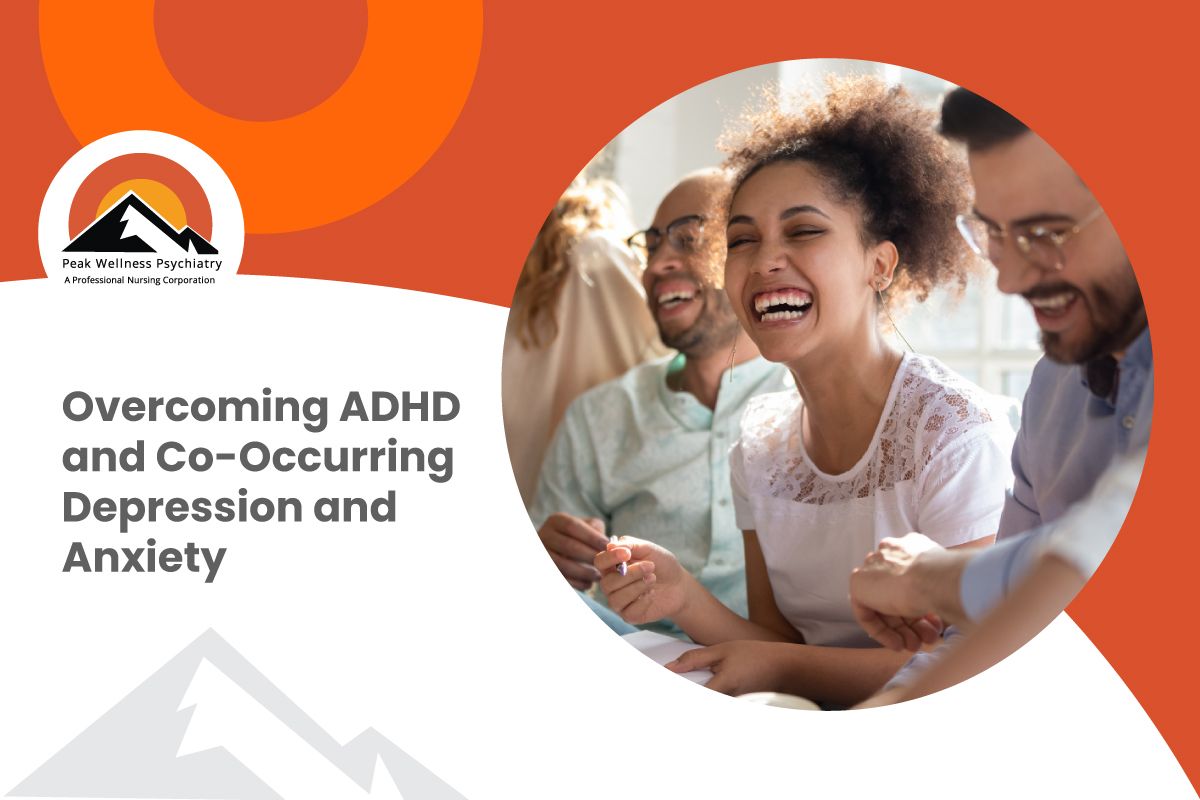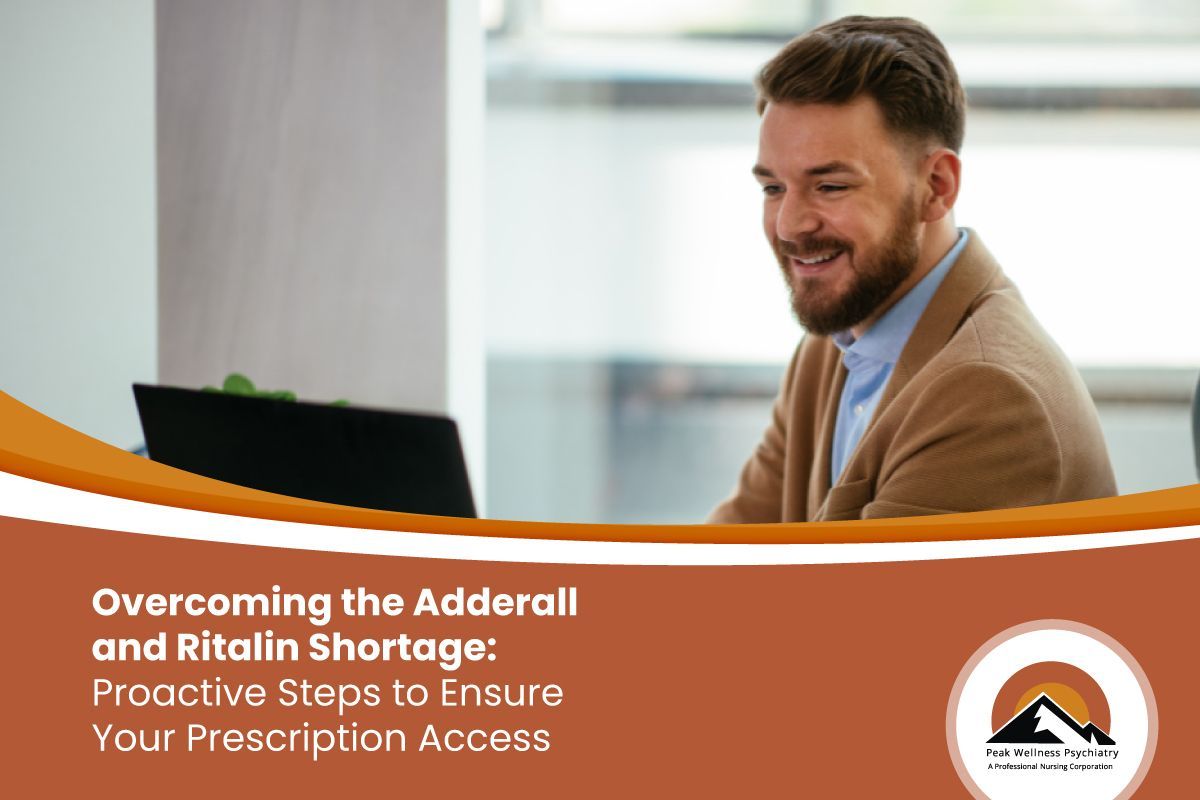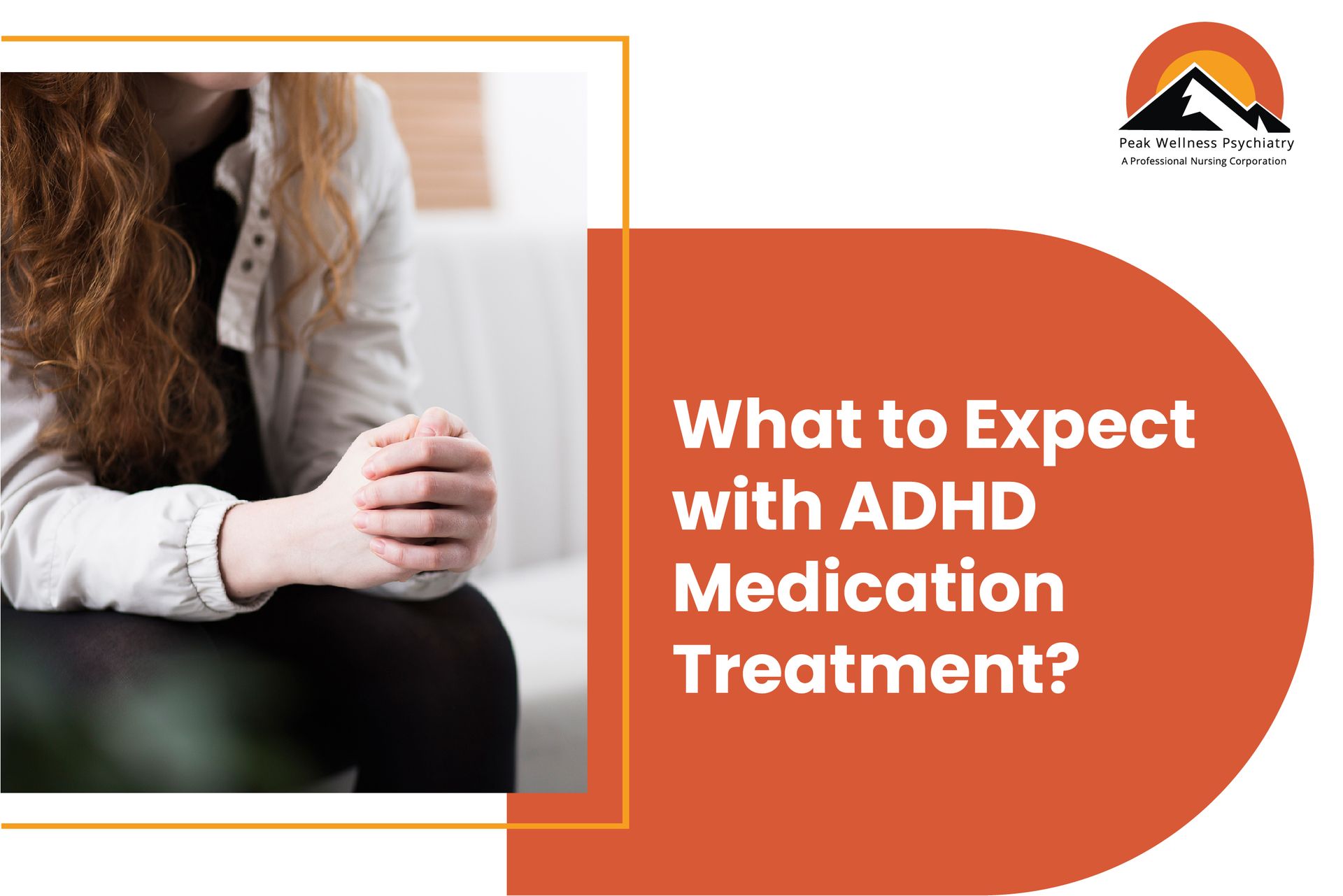What is Seasonal Depression and How Is It Treated? Understanding Seasonal Affective Disorder
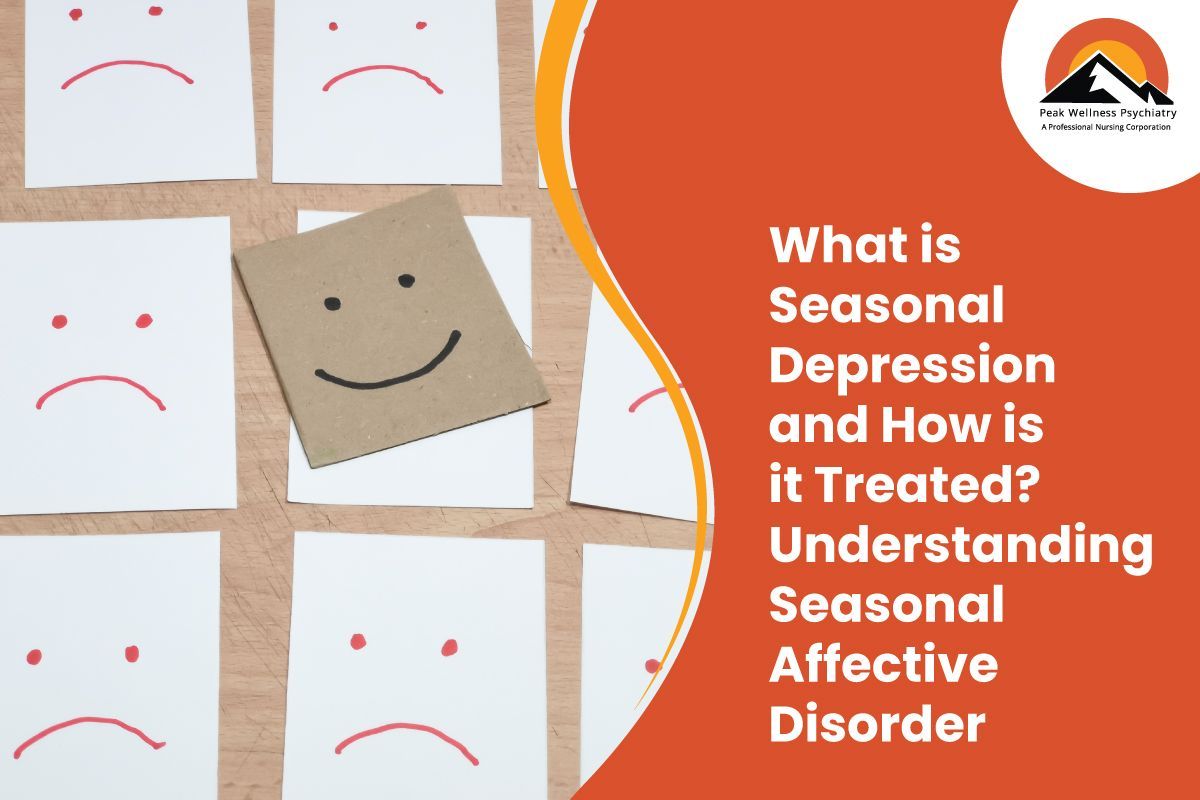
Do you ever feel like the changing seasons affect your mood more than you'd like? Do you feel down, tired, and unmotivated during the winter months?
As the weather turns colder and the days get shorter, feeling a shift in your mood is not uncommon. For many, this change can be more than just a passing feeling – it can signify seasonal depression.
If you or someone you know is struggling with the condition, understanding it is the first step to managing it better. Let’s get to know how the disorder works, including the causes, symptoms, and all the seasonal depression tips you need to start your journey to wellness.
What Is Seasonal Affective Disorder?
Seasonal Affective Disorder (SAD), or seasonal depression, is a recurring type of depression that typically manifests during specific times of the year, particularly in winter or fall. It is prevalent in places with long, cold, and dark seasons.
SAD affects approximately 10 million Americans, primarily among residents of the northern U.S. regions. The most susceptible groups within these communities are women, young adults, and individuals with a history of depression in their families.
While some may casually call this condition the "winter blues," it can be a more severe and debilitating form of mild depression. SAD can significantly impact a person's quality of life, causing symptoms such as fatigue and lack of motivation. It can be complex and challenging, leaving many people isolated and alone.
SAD is also common among individuals with major depressive disorder or bipolar disorder, particularly bipolar II disorder. Additionally, people with SAD often experience other mental health conditions, such as ADHD, eating disorders, depression, anxiety, or panic disorders.
For these individuals, the constant battle with negative thoughts and low moods can make finding the motivation to do even the simplest tasks challenging. Insomnia, or difficulty falling or staying asleep, is a common sign of depression and anxiety, and it can exacerbate the effects of SAD.
When Does Seasonal Depression Start?
The onset of seasonal depression varies from person to person, but it generally begins in late fall and lasts throughout winter. SAD may also affect individuals during the summer, although this is less common. The exact cause of seasonal affective disorder remains unknown. However, several factors contribute to its occurrence.
- Reduced sunlight exposure: Shorter daylight hours and reduced sunlight during winter can disrupt the body's internal clock, contributing to depression.
- Imbalanced brain chemicals: Reduced sunlight can also lead to imbalances in serotonin and melatonin levels, which are crucial in mood regulation and sleep patterns.
- Genetic predisposition: Individuals with a family history of depression or other mood disorders may be more susceptible to developing SAD.
Identifying the Signs: Seasonal Affective Disorder Symptoms
The symptoms of seasonal depression can vary in severity but often resemble those of major depressive disorder. It is crucial to recognize the signs of SAD and seek professional help if these feelings persist or interfere with daily life.
Some common seasonal affective disorder symptoms include:
- Persistent feelings of sadness, hopelessness, or worthlessness
- Loss of interest in activities once enjoyed
- Fatigue and low energy
- Difficulty concentrating or making decisions
- Irritability or agitation
- Changes in appetite and weight
- Sleep disturbances, such as oversleeping or insomnia
- Physical symptoms, like headaches or muscle pain
- Social withdrawal or isolation
- Suicidal thoughts or ideation
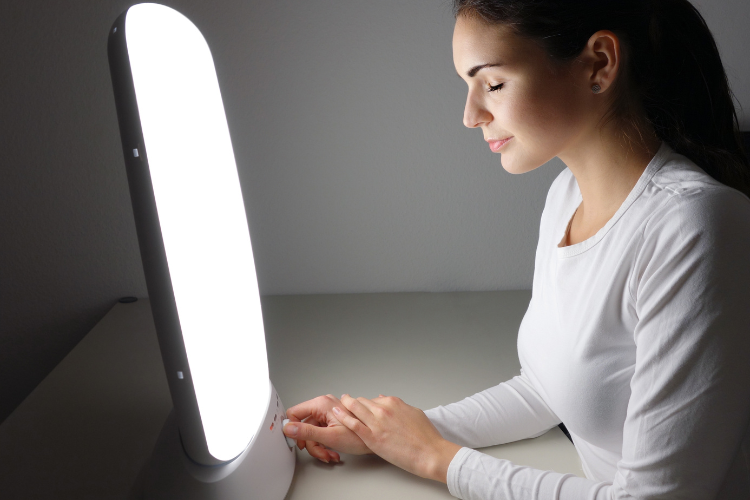
How to Treat Seasonal Depression
There are diverse treatment options for seasonal affective disorder that can be tailored to one's needs. Here are some effective ways to deal with SAD:
1. Light Therapy
This seasonal affective disorder therapy involves exposure to bright artificial light, typically from a lightbox, for a set amount of time each day. Light therapy helps to regulate the body's internal clock and balance brain chemicals, alleviating symptoms of SAD.
2. Psychotherapy
Cognitive-behavioral therapy (CBT) and other types of talk therapy help individuals identify and change negative thought patterns, promoting more positive coping strategies for managing seasonal depression.
3. Medication
Seasonal affective disorder medications include antidepressants, particularly selective serotonin reuptake inhibitors (SSRIs). In an extended-release form, bupropion, another type of antidepressant, has also received approval from the U.S. Food and Drug Administration (FDA) for daily use during the fall until the following early spring to prevent the recurrence of seasonal depressive episodes.
Before taking any medication, you should speak with a healthcare provider, as these medications may have side effects or may not suit you.
4. Lifestyle Changes
Exercise regularly, eat healthily, and sleep well. Individuals with SAD substantially enhance their mood and reduce their symptoms through seasonal affective disorder self-care. Additionally, spending time outdoors or near natural light sources, even during the colder months, can benefit those diagnosed with SAD.
5. Vitamin D Supplementation
Because sunlight is limited in the winter, many people experience a deficiency in vitamin D, contributing to symptoms of seasonal depression. Taking vitamin D supplements can alleviate some symptoms. However, you must consult your doctor before taking any supplements, especially if you’re already taking other medications.
6. Social Support
Connecting with friends, family, or support groups can provide a valuable network of understanding and encouragement during difficult times. Sharing experiences and coping methods with others can help you cope with seasonal depression.
7. Mindfulness and Relaxation Techniques
Practices such as meditation, yoga, and deep-breathing exercises can reduce stress and anxiety, contributing to overall well-being and improved mental health.
8. Alternative Therapies
Besides the seasonal depression tips mentioned above, some individuals may also find relief through alternative treatments such as acupuncture, massage therapy, or aromatherapy. While scientific evidence supporting these therapies' efficacy for seasonal depression is limited, they may be helpful for some in conjunction with more traditional treatments.
Tips For Seasonal Depression Prevention
Taking proactive steps to manage symptoms can be highly beneficial. By implementing the following strategies, you can help reduce the severity and duration of the condition.
- Monitor mood and energy levels: Pay attention to mood, energy, and behavior changes that may signal the onset of SAD. Early intervention makes it easier to manage symptoms.
- Establish a routine: Maintaining a regular sleep schedule, eating balanced meals, and exercising can help regulate mood and promote overall well-being.
- Stay connected: Retain social connections and reach out to friends and family for support.
- Plan: If you live in a state with four seasons and have a history of SAD, consider discussing treatment options with a healthcare professional before symptoms manifest. This proactive approach can help alleviate the severity of seasonal depression more effectively.

Break Free From Seasonal Depression!
To promote a holistic recovery from seasonal depression, those affected and their loved ones must understand the triggers, symptoms, and treatments associated with this condition. With early intervention and appropriate management strategies, patients can reduce the impact of seasonal depression and achieve long-term balance and fulfillment in their lives.
How We Can Help
Are you struggling with seasonal depression? Don't let it hold you back any longer. With Peak Wellness Psychiatry, you can access quality psychiatric care from the comfort of your own home.
No matter your mental health challenges, our experienced psychiatric nurse practitioners are here to listen and create a personalized treatment plan for you. We believe in individualized care, working collaboratively to tailor a treatment to your unique needs. Whether it's depression, anxiety, or any other mental health issue, we're here to provide the support and care you need to move forward.
You don't have to struggle alone – help is just a call away. Reach out to us at 888-909-8676 or use our online appointment form to schedule your consultation today.
We provide holistic online psychiatry services to patients using a mind-body-personal development approach to help you to thrive in your best self.
Peak Wellness Psychiatry | All Rights Reserved.
Any medications listed on this site do not imply that a medication nor treatment plan will be prescribed.
We provide Integrative Psychiatry Services through Telehealth to patients throughout California and Arizona regardless of your location.
Peak Wellness Psychiatry | All Rights Reserved.






